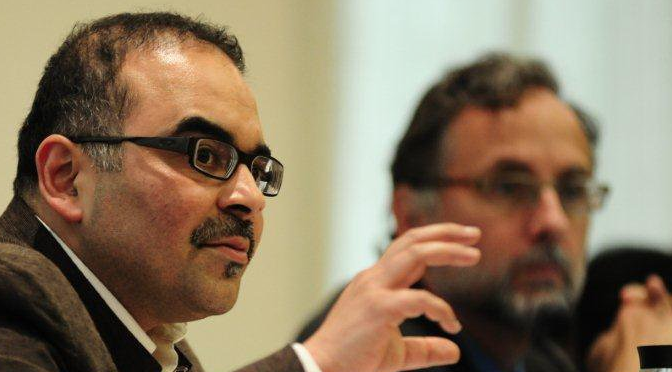The UCU is saddened to hear of the death of our colleague and friend, Dr Dwijen Rangnekar, Associate Professor at the Warwick Law School. Dwijen passed away in New Delhi, surrounded by his family and friends after a long battle with cancer. It is really difficult to accept that Dwijen has gone for he met life with irresistible charm, infinite celebration and an irascible humour.
Dwijen was an exemplar of a scholar who crossed cultural and intellectual boundaries in his scholarship and professional life. Trained as an economist he was hired as a joint appointment with Politics and International Studies and the Law School at Warwick and moved later to Warwick Law School. He was not only a scholar but an activist believing in the power of scholarship to effect social and political change. Dwijen’s scholarship challenged conventional understandings of intellectual property and he was particularly concerned with how these legal rights can impact on development prospects and food security of countries in the south.
His work on intellectual property rights, in particular on geographical indicators and the Goan drink of feni, were path breaking. His ESRC project was titled: Localising Economic Control Through Clubs: Examining the Intellectual Property Protection of Feni in Goa, India. His yet to be published manuscript on Feni cuts across diverse disciplines inaugurating new directions in interdisciplinary research; and brings life to an area of research otherwise colonised by obscure legal language. The fact that he could also share this drink with his friends and colleagues was as much a cause for hilarity as it was for camaraderie; both underlined Dwijen’s good humour and sharing nature.
Dwijen was a fighter against injustice and supported many causes, academic and non-academic, to make the world a better place. He was very generous with his time, especially with young scholars, fought tirelessly for colleagues as a representative of the UCU, gave lots of advice to new departmental UCU reps and showed his active solidarity for hourly paid tutors in the campaign against Teach Higher in the summer.
Culturally, he was a supporter of the arts, introducing his friends and colleagues to the beautiful sounds of what is popularly termed ‘world music’. In his quiet, unassuming way, Dwijen challenged traditional and Eurocentric constructions of scholarship, arts and popular culture.
Dwijen will be greatly missed by his students and colleagues in the Law School, colleagues in the Union, and in the wider university community.
—
The words above have been amalgamated from messages from colleagues and friends.
A tribute to Dwijen on the School of Law website:


